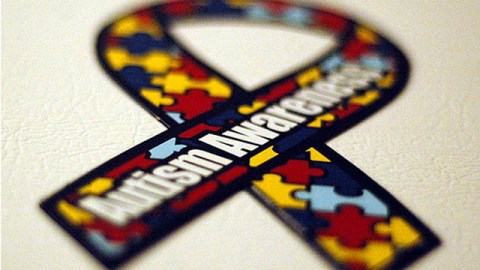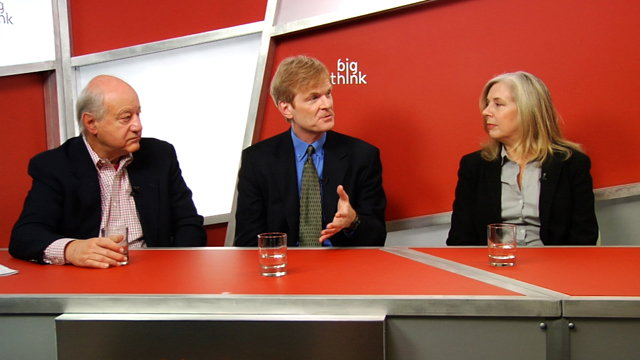Is Autism an Epidemic?

With 1 in every 110 children now diagnosed with autism—double the rate of a decade ago—news outlets and private families alike have speculated about the possibility of an “autism epidemic.” Since it’s not a communicable disorder, such speculation has focused research on any number of possible environmental triggers—most infamously, childhood vaccines, but also, for example, air pollution.
Yet the panel of experts Big Think convened for its Breakthroughs: Autism series says there is no cause for panic. Autism isn’t increasing—it’s just getting diagnosed far more often. “It’s not an epidemic,” explains Dr. Gerald Fischbach of the Simons Foundation; “it’s greater recognition, greater clinical acuity, more available resources, and mostly a broader definition of what we mean as it blends into the normal population on the one hand and the low end of the spectrum, the intellectually impaired, on the other.” As the so-called spectrum of autistic disorders becomes better understood, it inevitably widens to encompass patients who would otherwise be diagnosed (or not) with other abnormalities.
Dr. Christopher Walsh of the Children’s Hospital in Boston says a similar trend has occurred with other high-profile diseases, including breast cancer. “In all of medicine we’re seeing that we have better tools for diagnosing everything, so consequently the prevalence of breast cancer is higher than it used to be…initially people were worried that was because our environment was completely polluted, and there might be a role of that. But it also has to do with the fact that now we have MRI scanners that we didn’t have a generation ago that are very, very sensitive to detecting very small cancers.” Likewise, improved prostate cancer screening has detected growths “in many men in whom it’s an asymptomatic condition, [such] that they would die from other causes and otherwise would never have been recognized [as cancer sufferers].”
At least one other factor may be at play in the high autism diagnosis rate: increased public acceptance of the disorder. Dr. Susan Bookheimer recalls that “when there were no available treatments … the diagnosis of autism was associated with a terrible outcome as well as terrible stigma, since many years ago it was thought to be due to parental behavior. … [So] why would anyone want to diagnose their child with autism, and why would any physician want to tell a parent that their child may have autism? So I think that the whole milieu socially has changed quite a bit to make it possible.”
With the reduced stigma, of course, has come a partial shift in unfair blame—toward doctors who vaccinate, for example. The cure for that will come as scientists’ own understanding of autism steadily improves, yielding better treatments to match the flood of new diagnoses.
Image source: BLW Photography/Becky Wetherington, flickr.





